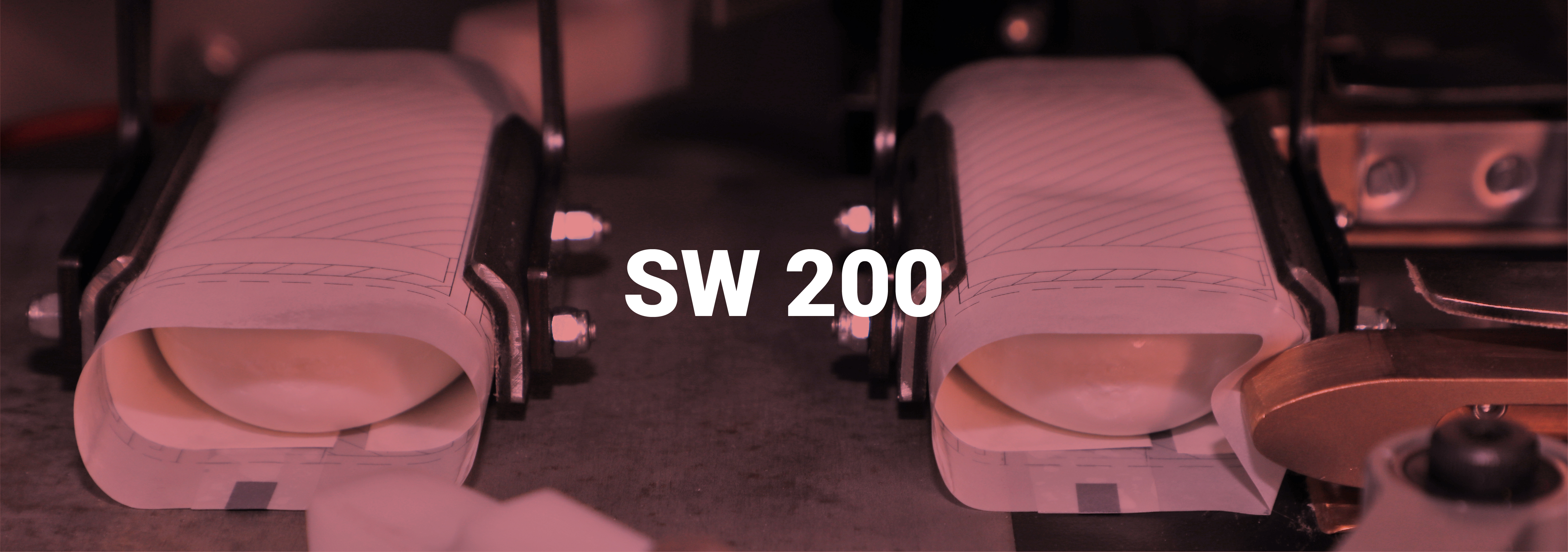ACMA SW 200: superior quality for the low volume soap market
Soap is unstoppable. Pegged at $42.3 billion in 2020, it is projected to reach $52.7 billion by 2025, exhibiting a CAGR of 4.4 percent in 2020-2025[1]. And with COVID-19 still spreading, the sector is gaining steam in the fight against the pandemic. "Wash your hands" is the first safety tip against SARS-CoV-2 - a unanimous precautionary measure that has contributed to the surge in popularity. This, combined with panic buying and heightened hygiene awareness[2], has substantially increased the supply demand gap.
As of today, the landscape is broken down into two categories: the traditional solid variety and the liquid one. The former comes in many types, such as bars, paper strips, flakes and powders, and is associated with a multitude of shapes and sizes - square, round, oval among others, either in opaque or clear format. From an economical viewpoint, solid products are more cost-effective, not requiring bottle packaging or dispensers. That said, liquid washing is considered more convenient to use and is therefore the fastest-growing segment of the market.[3]
For many years, a rising trend was that of liquid soaps. Liquid soaps are perceived to be more sanitary by most consumers - a shared opinion that, nevertheless, has no basis in science. According to infectious disease specialists, soap and water are the preferred mechanism for washing your hands and good hygiene, even better than hand sanitizers. Despite people being used to liquid solutions, a bar of soap would be perfectly effective (if not more) and typically cheaper. Plus, soap bars require less plastic packaging than their liquid counterpart.
The ongoing green revolution is shifting preferences, as more and more consumers prefer sustainable products, especially in the booming eco-conscious beauty market. It’s all about sustainability. Being traditionally less bulky and paper-based, bar products’ sustainable packaging allows brands to wink an eye at the environment-friendly consumer, a segment that is growing at staggering rates in recent years[4].
It's no surprise, then, that bar soaps are making a comeback. As estimated by Euromonitor, in the period 2020-2025 global bar soap sales are expected to grow by 4.8 percent compared to a less enthusiastic 3.2 percent for liquid soaps in the same period. This is also thanks to the overarching sustainability trend.
It is no wonder, then, that organic bar soaps are climbing in popularity, mainly thanks to the lack of harmful substances, such as paraben and triclosan - two ingredients with antibacterial properties that are hazardous to the body and the environment as they are made out of petrochemicals.
Geographically speaking, North America and Europe lead the hand soap market[5]. The US consumer population favors premium products, with a particular fondness for high-priced herbal and organic ones. Europe holds the lion’s share in the hand soap market, as its citizens are very sensitive towards eco-friendly brands[6]. Asia-Pacific is also rising in importance. As green awareness grows, the densely populated APAC region is forecast to gain significant market share in the coming years. Last but not least, South America, the Middle East and Africa: still at early stages, these three macro-areas are showing increasing demand thanks to more frequent hygiene campaigns conducted by organizations such as the WHO[7].
Always mindful of the evolving trends of the bar soap market, ACMA is a key player in the packaging industry, standing out for its commitment towards the environment and its innovative spirit.
SW 200: when low speed has high value
To meet the evolving needs of bar soap manufacturers, ACMA has just launched SW 200 - a high-end low-speed (up to 200 ppm) wrapper for rectangular and oval bar soaps in size of 75 to 200 grams. Built with efficiency in mind, SW 200 has a compact layout and small cantilevered footprint, therefore it can be used in any context, however little the space available might be. In other words, big performance, delicate product handling, ease of use and excellent product transport for quality: these are the benefits that makes SW 200 one of a kind.
But it’s not just about superior quality. Fruit of an exclusive know-how, SW 200 bridges the gap between premium solutions and low-speed. Indeed, when it comes to flexibility, this wrapper is first-class. At ACMA, we imagined this machine also for those niche producers, with low-volume production needs.
Thanks to its ergonomic design, SW 200 makes maintenance easier, enabling a quick (less than 1 hour) and simple change of format - an element that, in today's fast-moving market, is gold. Most importantly, low-volume does not always equal low growth. This is the case for most bar soap manufacturers in high-growth developing countries, who would lag behind on the international stage if they relied on entry-level solutions.
In addition, SW 200 is ideal for those who have the necessity to run a small-batch pilot scheme. In the luxury market, for instance, small batches are the name of the game. Not only luxury, though: startups and even R&D departments of Fortune 500 companies favor a lean approach for product launches. A company of this kind would rather test the waters before going all-in at the very start of a new project. That's where SW 200 really shines.
Ultimately, SW 200 is the solution that was missing in the soap wrapping machine market. And with this launch, ACMA, a world leader in packaging, now offers the most comprehensive machine portfolio in the whole soap bar industry, and it’s ready to suit each and every production requirement. That’s the goal of SW 200: to make superior quality available to everyone.
That’s why, if you are looking for a top-performance low-volume wrapper, you should look no further. Just contact us.



